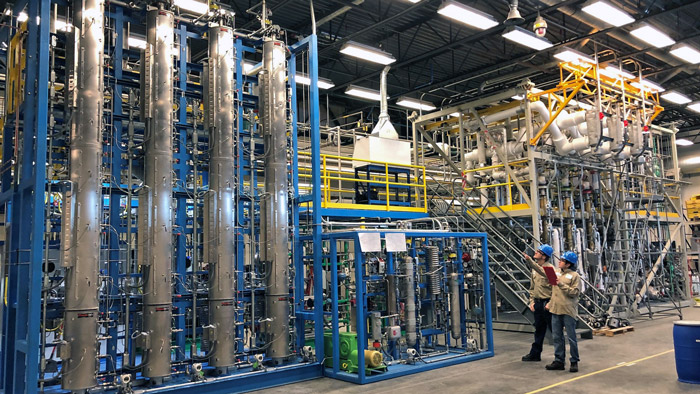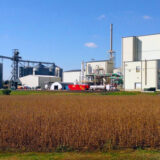
Cargill to evaluate Virent’s technology to produce biobased fuels
Cargill and Virent, Inc. are evaluating the use of Cargill’s corn dextrose as a feedstock to Virent’s BioForming® technology for the production of “drop-in” low-carbon biofuels and biochemicals.
Virent’s BioForming® technology uses sugars found in plants as a feedstock to produce drop-in renewable gasoline and jet fuel, as well as lower carbon biochemicals, including bio-paraxylene, a key raw material for producing 100% renewable and recyclable biopolyester. The sugars may originate from any plant source, including first generation crops such as corn, sugar cane and sugar beets, as well as lignocellulosic materials derived from wood, corn stover, bagasse and other sources.
“We are working to scale up the BioForming® process and are very pleased to announce our work with Cargill to study the availability of corn dextrose as a feedstock,” said Dave Kettner, president of Virent. “We believe U.S. corn dextrose is an attractive feedstock for our process and expect this study to demonstrate how U.S. corn dextrose can be used for broader applications to produce renewable gasoline, jet fuel and biobased chemicals. Establishing the Virent BioForming® process as a viable opportunity for producing jet fuel and renewable gasoline as a complement to ethanol will not only open new markets for corn but expand the greater opportunities for both renewable fuels and chemicals.”
Upon completion of the study, Virent will use the findings to evaluate options for scale-up and the development of a first commercial plant utilising the BioForming® technology. The long-term objective is to use commercially available feedstocks as a bridge to next-generation lignocellulosic feedstocks in the future.
“Cargill is excited to take this next step in our long-standing journey with Virent. Virent’s biochemical R & D expertise and Bioforming® technology combined with Cargill’s global strength in carbohydrate feedstock and expertise in corn processing makes this a natural joint effort,” said Cargill managing director, Mike Wagner. “Building out the bioeconomy and increasing the diversification of our corn grind are both at the core of our strategy, making this an ideal project and highly compatible partnership for Cargill.”
About Cargill
Cargill, Incorporated is an American privately held global food corporation based in Minnetonka, Minnesota, and incorporated in Wilmington, Delaware. Some of Cargill’s major businesses are trading, purchasing and distributing grain and other agricultural commodities, such as palm oil; trading in energy, steel and transport; the raising of livestock and production of feed; and producing food ingredients such as starch and glucose syrup, vegetable oils and fats for application in processed foods and industrial use. Cargill has 155,000 employees in 70 countries. In its 2020 Annual Report, Cargill reported revenues of USD114.6 billion in 2019. For more information, visit https://www.cargill.com/.
About Virent
Virent is a wholly owned subsidiary of Marathon Petroleum Corporation, a leading, integrated, downstream energy company. Virent technology is creating the low-carbon fuels and chemicals the world demands using a wide range of naturally occurring, renewable resources. Its patented technology features catalytic chemistry to convert plant-based materials into a full range of products identical to those made from petroleum, including gasoline, diesel fuel, jet fuel, and chemicals for plastics and fibers, including bio-paraxylene, benzene and toluene. The products are drop-in replacements that enable full utilisation of existing logistics infrastructure. For more information, visit: www.virent.com.













